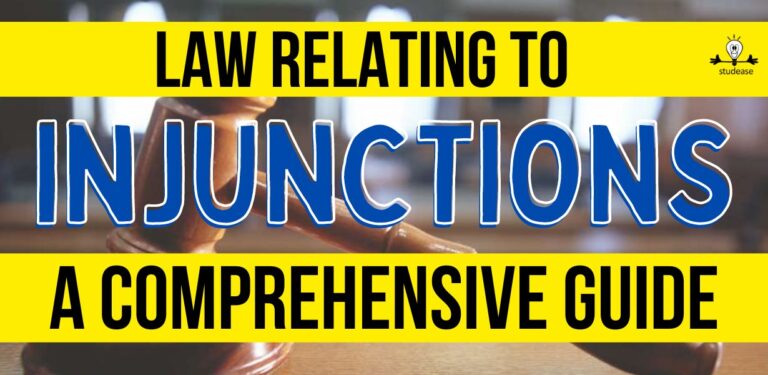10+ Best Books for Judiciary Exams Preparation in 2024

Preparing for Judiciary Exams can be a daunting task, especially when it comes to choosing the right study material. With so many books and resources available in the market, it can be overwhelming to decide which ones to invest your time and money in.
However, the right set of books can make all the difference in your preparation and help you ace the exam.
To begin with, it is essential to understand the exam pattern and syllabus thoroughly. This will give you a clear idea of the topics you need to focus on and the weightage of each section.
Once you have a good grasp of the syllabus, you can start looking for recommended books and study material that cover all the topics in detail.
Apart from reference books, it is also important to practice with mock tests and question papers to get a feel of the actual exam. This will help you identify your strengths and weaknesses and work on them accordingly.
In this article, I will take a closer look at some of the best books for Judiciary Exam preparation that can help you in your journey towards becoming a judicial officer.
If you are a video person, you can watch the video version now:
Page Contents
Why Books are Important?
When preparing for Judiciary Exams, it is important to have the right study material. Coursebooks are an essential part of the preparation process. They provide a structured approach to learning and cover all the topics that are important for the exam. Here are some reasons why coursebooks are important:
- Structure: Course books provide a structured approach to learning. They cover all the topics that are important for the exam and help you understand the concepts in a logical manner.
- Comprehensive: Course books are comprehensive. They provide in-depth knowledge of the subject and help you understand the concepts better.
- Relevance: Course books are designed keeping in mind the latest syllabus and exam pattern. They are updated regularly to ensure that the content is relevant and up-to-date.
- Practice Questions: Course books also come with practice questions and mock tests that help you assess your knowledge and improve your performance.
Also Check: Expert Tips and Strategies Judiciary Interview
Why Read Bare Act and Course Books Also for Judiciary Exams?
Reading Bare Act and Course Books is important for Judiciary Exams preparation.
Course books provide a comprehensive understanding of legal concepts and cover all the topics that are important for the exam and help you understand the subject in a better way. Coursebooks also come with practice questions and mock tests that help you assess your knowledge and improve your performance.
Bare Act helps you understand the exact language of the law. It provides a better understanding of the legal provisions and helps you interpret them correctly. This is important for Judiciary Exams because the questions are often based on the interpretation of legal provisions.
Best Books for Judiciary Exam Preparation
With the right books, it can become much easier to prepare for your judiciary exams. Here is my list of the best books for the Civil Judge examination that I recommend for you:
Also check: Delhi Judiciary Exam Guide
Bare Acts
The Bare Acts are the most important books for Judiciary Exam Preparation. Make sure to have the latest version of the following Bare Acts:
- The Constitution of India
- Indian Penal Code and Criminal Procedure Code
- Indian Evidence Act
- Code of Civil Procedure and Specific Relief Act
- Transfer of Property Act and Indian Contract Act
- Law of Torts and Consumer Protection Act
- Muslim Law and Hindu Law
The Constitution of India
The Constitution of India by M. Laxmikanth is a highly recommended book for Judiciary Exam Preparation. It covers all the important topics related to the Indian Constitution and is written in an easy-to-understand language.
Indian Penal Code and Criminal Procedure Code
For Indian Penal Code and Criminal Procedure Code, you can refer to the following books:
- Indian Penal Code by Ratanlal and Dhirajlal
- Criminal Procedure Code by R.V. Kelkar
Indian Evidence Act
For Indian Evidence Act, you can refer to the following books:
- Indian Evidence Act by Batuklal
- Indian Evidence Act by Avtar Singh
Code of Civil Procedure and Specific Relief Act
For the Code of Civil Procedure and Specific Relief Act, you can refer to the following books:
- Civil Procedure with Limitation Act by C.K. Takwani
- Specific Relief Act by Mulla
Transfer of Property Act and Indian Contract Act
For the Transfer of Property Act and the Indian Contract Act, you can refer to the following books:
- Transfer of Property Act by Singhal Law Publications
- Indian Contract Act by Avtar Singh
Law of Torts and Consumer Protection Act
For Law of Torts and Consumer Protection Act, you can refer to the following books:
- Law of Torts by R.K. Bangia
- Consumer Protection Act by Paras Diwan
Muslim Law and Hindu Law
For Muslim Law and Hindu Law, you can refer to the following books:
- Muslim Law by Aqil Ahmed
- Hindu Law by Paras Diwan
Study Material and Resources
Here are some important aspects to consider when selecting study material and resources:
Latest Edition of Books
Make sure you use the latest edition of books for your Judiciary exam preparation. The newest edition will have updated information and covers all the recent developments in the law. Make sure to check the publication date of the book before purchasing it.
Arrangement of the Bare Acts
The bare act is an essential resource for Judiciary exam preparation. It’s important to choose a book that arranges the bare act in a systematic and organized manner. This will help you quickly locate the relevant sections and save time during the exam.
Index and Structure
Another important aspect to consider is the index and structure of the book. A well-structured book with a comprehensive index will help you navigate through the content quickly and efficiently. This will enable you to focus on the relevant topics and save time during the exam.
Chapters
Choose a book that covers all the chapters of the syllabus in detail. The book should clearly and concisely explain the concepts, relevant examples, and case laws. This will help you understand the topics thoroughly and answer the questions correctly during the exam.
Landmark Judgments
Make sure to choose a book that covers landmark judgments related to the topics in the syllabus. This will help you understand the practical application of the law and provide you with valuable insights into the judicial process.
Additional Subjects to Study
Along with the core law subjects, there are several other topics that you need to study to crack the Judiciary Exams. Here are some of the most important additional subjects:
Mercantile Laws
Mercantile Laws deal with the legal aspects of trade and commerce. You need to have a good understanding of the Indian Contract Act, Sale of Goods Act, Partnership Act, and Negotiable Instruments Act to score well in this section.
Domestic Violence Act
The Domestic Violence Act is an important legislation that deals with the protection of women from domestic violence. You need to know the provisions of this act and the rights of women under this act to answer the questions related to this topic.
Socio-Legal Issues
Socio-Legal Issues refer to the legal aspects of social problems. You need to have a good understanding of the various social problems in India and the legal provisions to tackle them. Topics like Child Labour, Human Rights, and Environmental Law are some of the important topics in this section.
Law of Trusts
The Law of Trusts deals with the legal aspects of trusts and their administration. You need to know the provisions of the Indian Trusts Act and the various types of trusts to answer the questions related to this topic.
Administrative Law
Administrative Law deals with the legal aspects of the administration of government agencies. You need to know the provisions of the Administrative Law and the various rules and regulations related to the functioning of government agencies.
Law of Equity
The Law of Equity deals with the legal aspects of fairness and justice. You need to know the various principles of equity and the legal provisions related to it.
Current Affairs
Current Affairs is an important section in the Judiciary Exams. You need to be updated with the latest happenings in India and the world. Topics like Indian Polity, International Relations, and Economic Developments are some of the important topics under this section.






